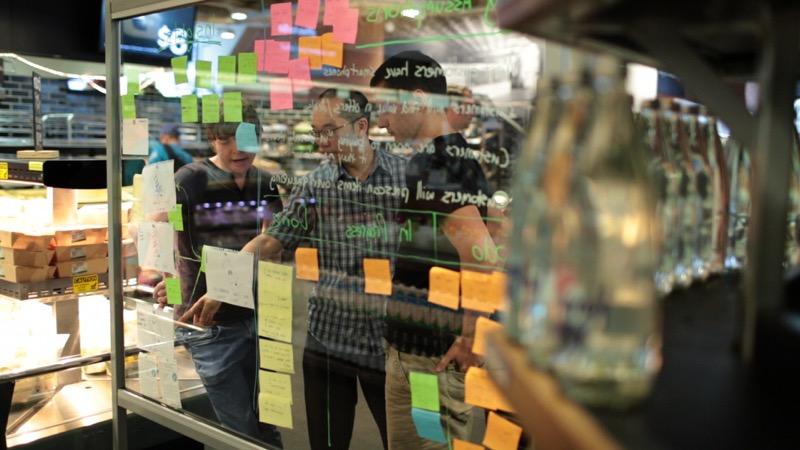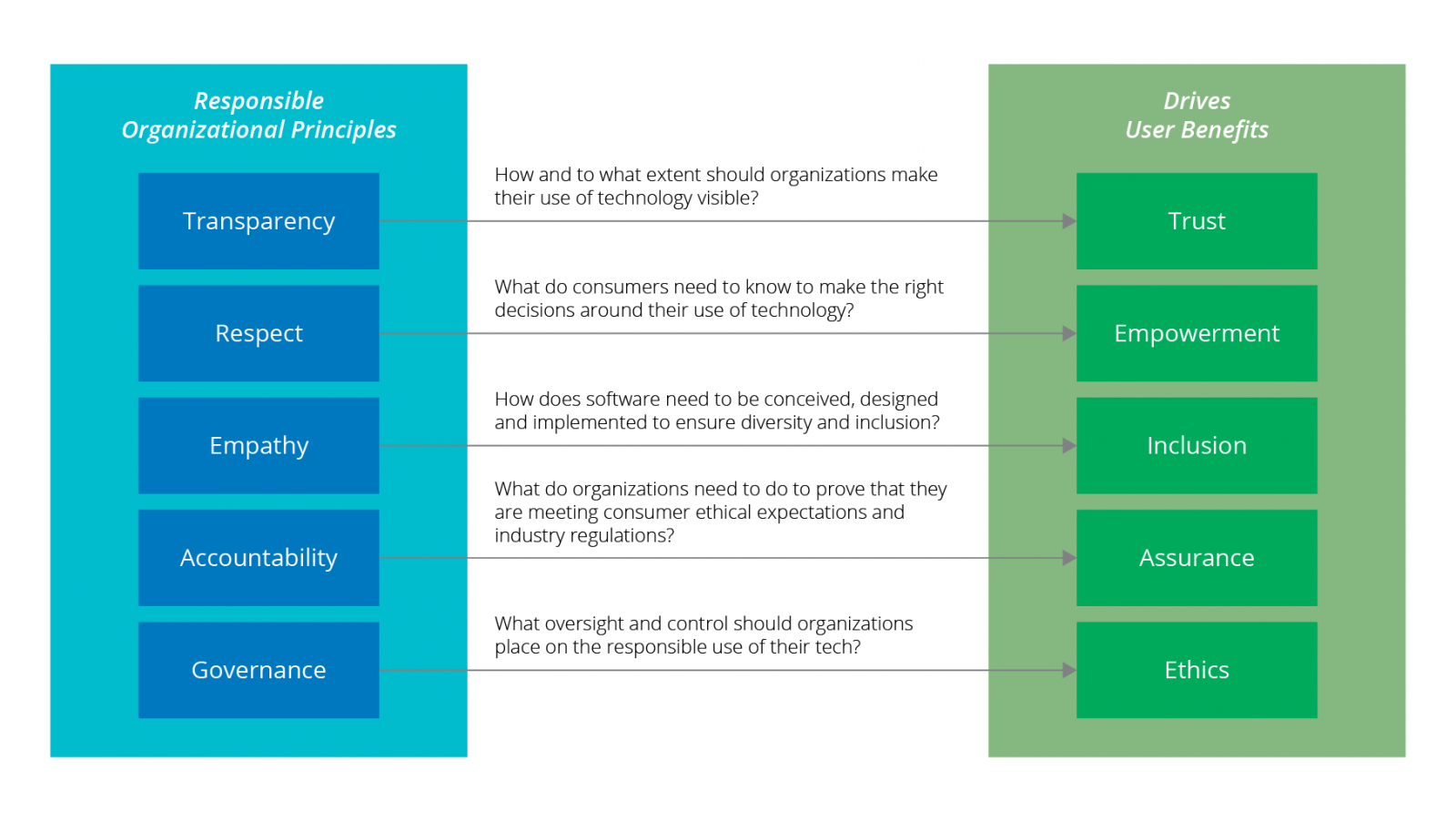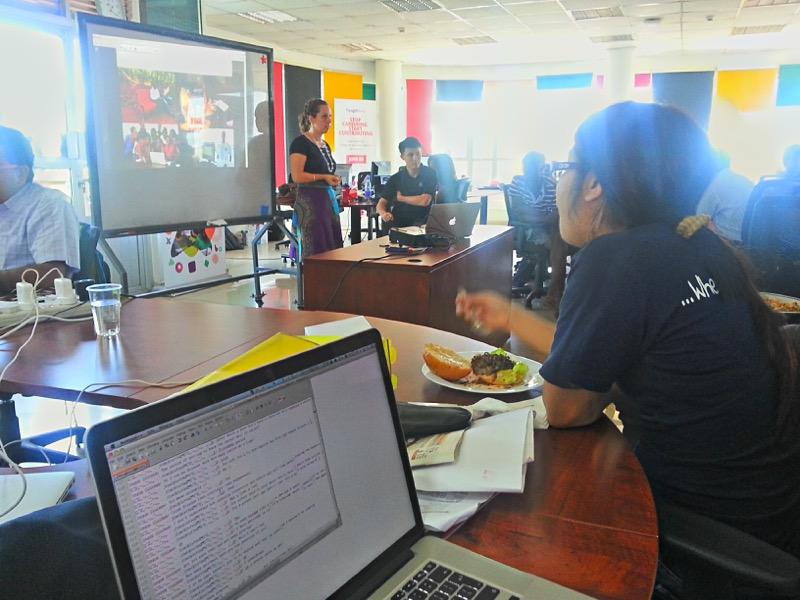By
Published: December 17, 2018
Change in the industry
As we look back at the last 25 years of Thoughtworks, it is impossible to separate the evolution of the organization from the evolution of the technology industry. When we were first founded, there was little evidence in place to demonstrate just how prevalent technology would become to us – as individuals, businesses, and society.
Today, technology has enabled small retailers to have a presence in global markets; created a platform for minorities to be heard; made visible to the world many injustices that are now being addressed, and has enabled globally distributed communities to engage and flourish.
However, alongside these real and powerful benefits, we have seen the advance of technology have a brutal and lasting impact on our local communities. We have seen our social interactions – and the decisions of society – become ever more defined by digital connection. We see technology magnify the existing issues of our modern world - amplifying extremist voices, increasing the marginalization of minority groups, and adding to the destruction of our environment. Instead of opening conversation and discussion, the rise of the internet and social platforms has led to an increase in echo chambers and created the opportunity for serious misuse of user data. The last ten years have seen a dramatic increase in trolling, addiction, privacy, and data breaches – and this is leading to a growing loss of trust both in technology, and the technology industry1.
From agile to responsive
We are forging a new frontier in technology that is reminiscent of the agile revolution. In the last 25 years, software development has been transformed from siloed teams, slowly and inflexibly delivering old requirements, to multi-functional teams reacting to rapidly changing needs at the core of the business. This has led to the rise of Responsive Organizations, that gear themselves to quickly understand and deliver against the rapidly changing needs of their customers, whilst maintaining a relentless focus on value. Being a responsive org also requires the removal of friction from the organizational structure, processes, and culture to unlock the capability of their people and maximize the value they get from their technology investments. For the majority of today's leading technology organizations, this responsive revolution has been critical to their current success.
Yet it is no longer enough to simply build the right thing, and build the thing right. We must also consider the wider implications of the technology we build. That means taking responsibility for the unintended consequences we might unleash, to protect the long-term sustainability of our businesses and brands.

As we look ahead, we can see that the uptake and significance of tech is only likely to become more profound. Questions are being asked - what is the impact of technology on our societies and children? How, and when, should technology be governed? What are the unintended consequences of the technology we use? What does regulation look like in a world where technology is expanding faster than our understanding of it? How can we build technology which takes these questions into account?
The idea of building technology responsibly is not new to Thoughtworks. As a purpose-led organization with a stated mission of ‘bettering humanity through technology,’ we have long focussed on building technology that has a positive impact on society. Whether this is advocating for open-source software to ensure the technology industry fully benefits from innovation, defending the free internet, or driving the emergent practices of security and privacy by design – ethics and technology is a deeply rooted part of our culture.
Beyond four walls
In the last year or two, these questions on technology’s impact on society have grown much louder and more prominent. We hear increasing discussion about the need for user privacy, the truth about consent, tech addiction, developer ethics, the need for a regulatory overhaul. There are many terms being used to describe this: ethical tech, human tech, responsible tech, equitable tech – which reflects the urgency and the growing need for change across policy, regulation, corporate responsibility, technologist education, and public awareness. Building a common vocabulary will enable deeper impact to be realised from these initiatives - where business, activists, social scientists, and policy-makers can collaborate. Whatever it is ultimately called, we believe responsible technology is an emergent field and one which will be core to the next chapter of Thoughtworks’ – and our industry's – evolution.
Whilst true change must be holistic and systemic, technologists and technologically-enabled organizations must be a key part of the solution. We call this being a Responsible Organization.
The Responsible Organization
With the increasing realisation that technology is not neutral, organizations that want to have a positive social impact (or at the very least to avoid the potential harm associated with negative social impact) must accept responsibility for the technology they create or engage with. Organizations need to go beyond Corporate Social Responsibility, and beyond market responsiveness, to think instead about what true organizational responsibility means.
We have to think beyond the utopic or dystopic views of the world to find innovative paths forward. The impact of technology on society is complex, and the challenges will not be resolved with a simple or silver bullet solution. Compromise has a part to play: organizations must balance short-term commercials with ethical decision-making to protect our collective future. We have to understand the potential consequences and look for opportunities to employ empathetic design, equitable innovation, and responsible technology choices. Not only will this reduce harm to the most vulnerable members of society, but it will also protect long-term business sustainability
Organizations must balance short-term commercials with ethical decision-making to protect our collective future.
We increasingly see that consumers, employees, and the market care about the impact of technology on society. Responsible executives understand that organizations that take action on issues of ethics and equity are not only more economically sustainable, but also that being a Responsible Organization can be a real competitive advantage. With these insights, they leverage their tech strategy to take advantage of the opportunities as well as mitigate the risks.
The media in 2018 has been full of horror stories of the impact of technology decisions and their unintentional consequences on businesses. From employee walkouts and mass resignations in Silicon Valley to stock prices plummeting after breaches of trust, brand reputation is being increasingly connected to the technology of business.
Yet it’s not all bad news. Various studies3 have shown that the companies who demonstrate a commitment to purpose, to diversity, and to ethical practices consistently realise greater consumer loyalty, reduced talent attrition, and a more positive brand presence.
Responsible Organizations have several key traits:
Principle-led
As technology development and adoption continue to develop at pace, it has become clear that regulation is behind - and will take some time to catch up. Initiatives like GDPR are not holistic enough to give overwhelmed and time-poor users real choices with technology and data. We could argue in fact that GDPR has proven that consent and consent-based regulation is not the answer.
Instead, Responsible Organizations should consider a principle-led approach to building technology that is respectful, inclusive, and aware. Below is a starting point for organisations to consider when assessing their impact. The values that emerge through answering these questions should be shared and considered across the organisation.

Diverse and inclusive
Responsible Organizations have diverse and inclusive workplaces, and strive to find more, and better, ways of doing this. Diversity and inclusion are key for setting up a thriving workplace; environments, where employees can bring their whole selves to work encourage greater collaboration, innovation, more responsible decision-making, and have less employee attrition2. Furthermore, having a diverse workforce helps ensure that technology is developed with a wider range of users in mind, and improves organisational empathy toward diverse user communities.
There are countless examples where non-diverse teams have created products that exclude entire sections of the community: voice recognition responding more effectively to male voices than female; facial recognition systems failing to recognise black faces; health care apps that ignore female health considerations.
We have reached a place in our technological evolution where data knows more than we do.
Despite the bad press surrounding diversity and AI, there are powerful opportunities for organizations to improve their inclusivity with technology. We have reached a place in our technological evolution where data knows more than we do. Whilst bias is inevitable for humans; we can use data and AI to resolve and balance these biases, rather than further entrenching them. There are more and more tools emerging that can help: tools to detect biases in job descriptions; to provide an alternative, fairer candidate searching and matching platforms, and to help track diversity data in your recruitment and HR pipelines. Responsible organisations will prioritize finding (and vetting) these tools to support their inclusivity efforts.
Courageous and aware executives
Business leaders need to be aware of the implications of the technology they create, not only to ensure that technology is built ethically but because these decisions will have an impact on the long-term viability of their business.
These executives enable a value-driven, transparent decision-making culture. They listen to and empower their technologists – who have the insight and the ability to see emerging trends in tech and to recognise the potential for misuse. Technologists, given enough scope, will be the ones to identify technological solutions such as methods for addressing algorithmic bias, ensuring user security and privacy, designing for diversity, and recommendations for green tech choices.
However, technologists cannot provide all the answers. It is more important than ever to foster trust and respect in non-technical perspectives - leveraging diverse voices and creating cross-disciplinary teams.
Cross-disciplinary teams
Responsible Organizations have ethically conscious teams, who realise they have biases and blind-spots and strive to know and expose them. These teams appreciate the possibility of unintended consequences of their technological decisions, consider how scale changes the impact of the solution; and how the product or platform could be appropriated in unplanned ways.

Social scientists will have increasing opportunities to contribute to the discussion about how technology will be used, or in identifying possible unintended consequences. As organizations move from responsive to responsible, we will see a shift from cross-functional to cross-disciplinary teams – who consider not only whether they can, but whether they should.
Non-traditional partnerships are celebrated in the ground-breaking Thoughtworks Arts Residency. We partner with artists who work at the cutting edge of technology research, asking important questions about the future of industry, culture, and society. This has become significant for both our own future focus, but also in exposing new perspectives to our clients.
Ethically enabled technologists
In order for responsible tech to be built, Responsible Organizations must ensure they have ethically enabled technologists. There is an increasing number of toolkits, tools, and practices in the ethics space. In the same way, technologists had to learn and understand new ways of working to enable agile adoption; we must consider how to integrate ethics tools and practices to our ways of working. Technologists should be aware of the ethical questions that their tech might raise; to understand how to build ethics into their development practices, to strive for customer-centered data and security practices, unbiased algorithms, and greener tech choices. They will play a key part in determining threat models as the organisation scales.
With the great power that technology gives us, comes great responsibility. It’s time for organizations to intentionally and positively take responsibility for the long-term sustainability of their business, their brand, and our society. To move beyond being Responsive to be Responsible, to extend Agile to Ethical, and to move from Regulatory to Principle-led decision-making.
The key to successfully creating responsible organizations is building awareness, empowering technologists, and creating a responsible culture – from executive to technologist – and at Thoughtworks, we are ready to help drive our industry in that direction and help these organisations emerge.
___________
Footnotes
1. Edelman Trust Barometer 2018
2. Deloitte, Core Beliefs & Culture Survey Executive Summary, 2014; Deloitte, Millennial Review, 2016; Nielsen, Global Survey on Corporate Social Responsibility, 2014; Harvard Business Review, The Business Case for Purpose, 2015
3. McKinsey, Delivering through Diversity, 2017; Cloverpop, White Paper: Hacking Diversity with Inclusive Decision-Making, 2017; Google diversity annual report, 2018; Forbes, Fostering Innovation Through a Diverse Workforce, 2011
Disclaimer: The statements and opinions expressed in this article are those of the author(s) and do not necessarily reflect the positions of Thoughtworks.

